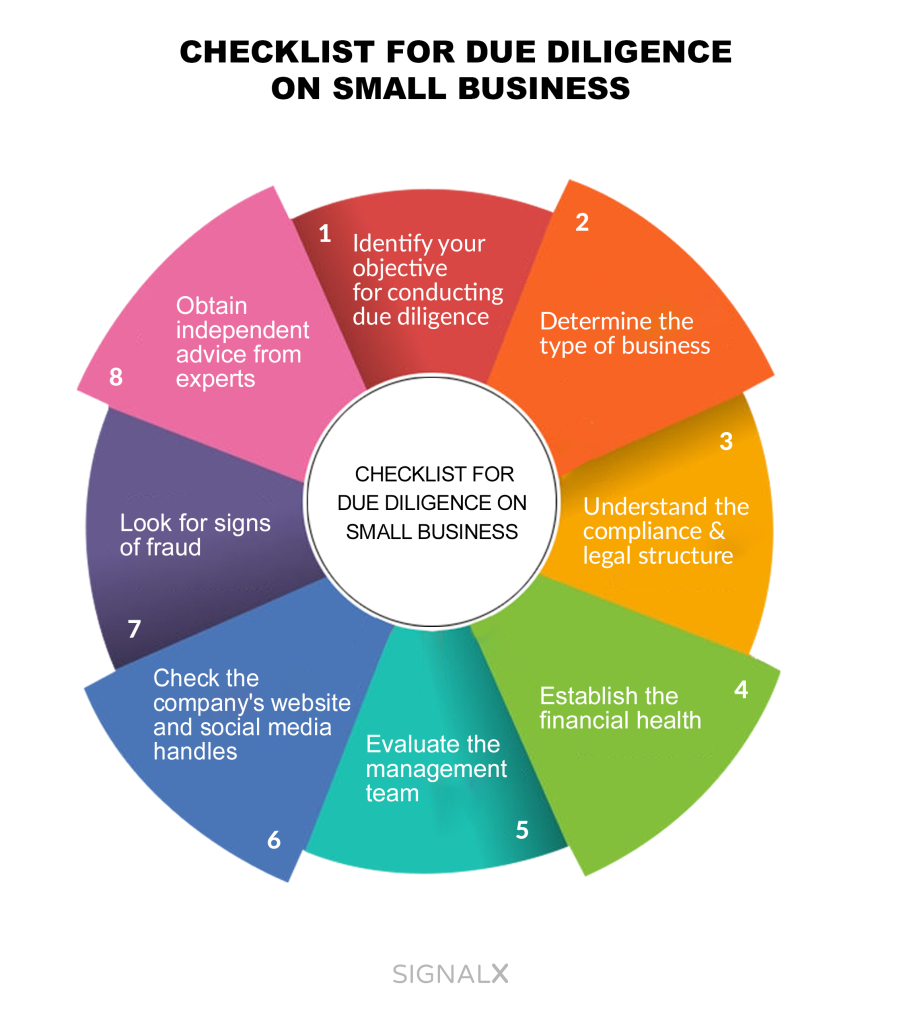How to run Due Diligence on a Small Business?


- Where does your company stand in this complex ecosystem?
- How do you navigate the ecosystem?
- How do you know who to engage with and who to avoid?
What is Due Diligence on a Small Business?
Due diligence on a small business is a comprehensive assessment that you run to establish the legitimacy of any business target. The aim of this process is to help you determine if the target is in good business standing and has the right assets to support its operations. It is an essential means to reduce the risk of doing business with a partner possessing a grey business reputation.Why is Due Diligence on Small Business Important?
Deloitte reports that failure to adequately identify and manage third parties in your supply chain can result in fines and revenue losses to the tune of US$2-50 million. If your company is dealing with a ton of small businesses, it’s important that you take adequate measures to safeguard your business operations and circumvent potential pitfalls taken care by an effective due diligence on a small business.
Running Due Diligence on a Small Business
A Step by Step Guide
Step 1: Identify your objective for conducting due diligence
The first thing is to know why you want to run due diligence on a target company. Generally, there are two reasons: 1. Due diligence for the purpose of Mergers & Acquisitions (M&A) 2. Due diligence for strategic business partnerships Whatever the case may be, having a clear idea of the purpose of doing due diligence on a business is important.Step 2: Determine the type of business.
Once you have identified the business objective, you need to understand the type of small business your target is.Step 3: Understand the compliance & legal structure
Now that you know the type of business, you can start looking into the legal aspects of the business. You’ll need to understand the legal structure of the business. This includes things like:- Type of business – Sole Proprietor, Partnership, Limited Liability Company, Corporation
- Intellectual property rights
- Bank accounts
- Business location/s
- Number of employees
- Insurance coverage
- Business registration
- GST registration
- Governmental licenses
- Tax filings
Step 4: Establish the financial health
Doubtful if your new business partner has the financial wherewithal to take major business leaps with you? Take a comprehensive look at the company’s balance sheet and the profit and loss statement. A balance sheet shows where the business stands financially. The P&L shows how much revenue the business generated during a certain period of time.Step 5: Evaluate the management team
You also need to evaluate the management team. This involves looking at the people who run the business.- Are they trustworthy?
- Do they have a competent professional history?
- Do they have any litigation history?
Step 6: Check the company’s website and social media handles
The pandemic has made the internet the most important marketplace, today. A strong business partner will have a well-rounded and informative digital presence. Check the company’s website to see if it provides information about the business. Check whether the company’s social handles respond to queries, requests and customer complaints. This helps you associate with more responsible and responsive business partners.Step 7: Look for signs of fraud
There are several ways in which businesses commit fraud. Some of these include falsifying records, using fake invoices and money laundering. A due diligence exercise can help you identify signs of any of these activities and ensure you enter a partnership with no surprises coming your way.Step 8. Obtain independent advice from experts
You can get expert opinions if you have any doubts about the legitimacy of the business. One option could be to outsource due diligence to Due Diligence experts.

